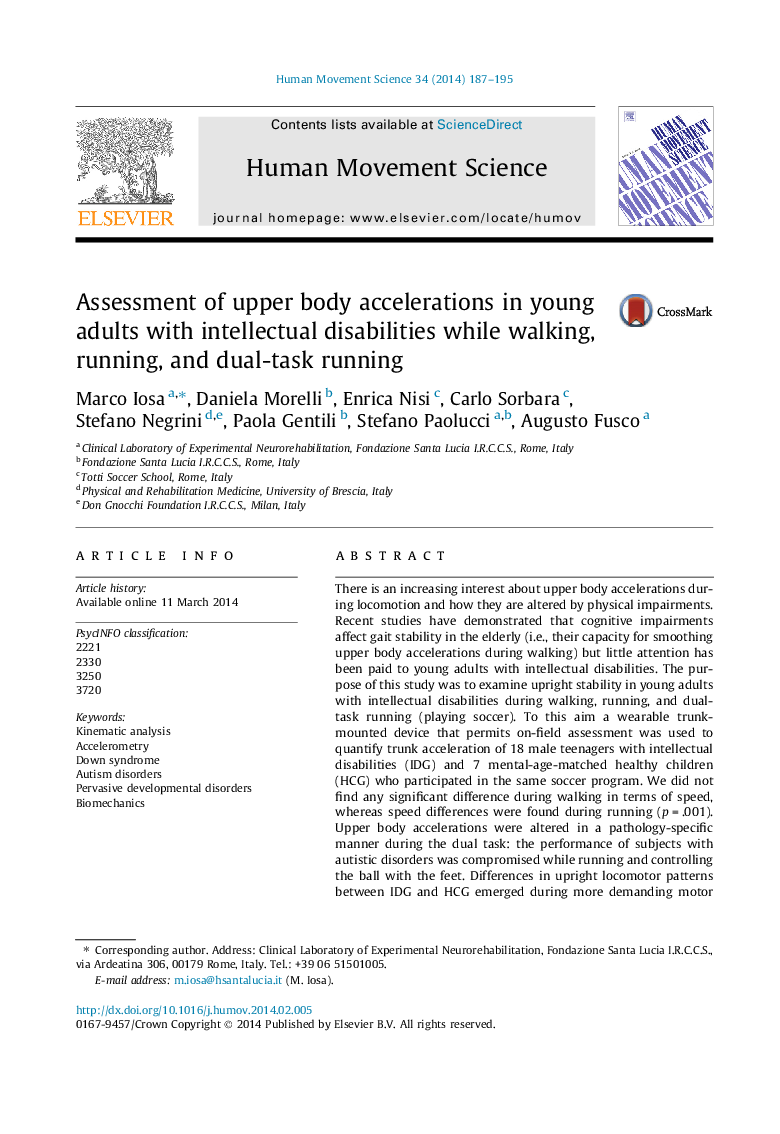| Article ID | Journal | Published Year | Pages | File Type |
|---|---|---|---|---|
| 928422 | Human Movement Science | 2014 | 9 Pages |
•Boys with intellectual disabilities showed slow and less stable running patterns.•Accelerations were poorly smoothed in subjects with autism during playing soccer.•An accelerometer device allows for on field motor measures during sport training.
There is an increasing interest about upper body accelerations during locomotion and how they are altered by physical impairments. Recent studies have demonstrated that cognitive impairments affect gait stability in the elderly (i.e., their capacity for smoothing upper body accelerations during walking) but little attention has been paid to young adults with intellectual disabilities. The purpose of this study was to examine upright stability in young adults with intellectual disabilities during walking, running, and dual-task running (playing soccer). To this aim a wearable trunk-mounted device that permits on-field assessment was used to quantify trunk acceleration of 18 male teenagers with intellectual disabilities (IDG) and 7 mental-age-matched healthy children (HCG) who participated in the same soccer program. We did not find any significant difference during walking in terms of speed, whereas speed differences were found during running (p = .001). Upper body accelerations were altered in a pathology-specific manner during the dual task: the performance of subjects with autistic disorders was compromised while running and controlling the ball with the feet. Differences in upright locomotor patterns between IDG and HCG emerged during more demanding motor tasks in terms of a loss in the capacity of smoothing accelerations at the trunk level.
Graphical abstractFigure optionsDownload full-size imageDownload as PowerPoint slide
